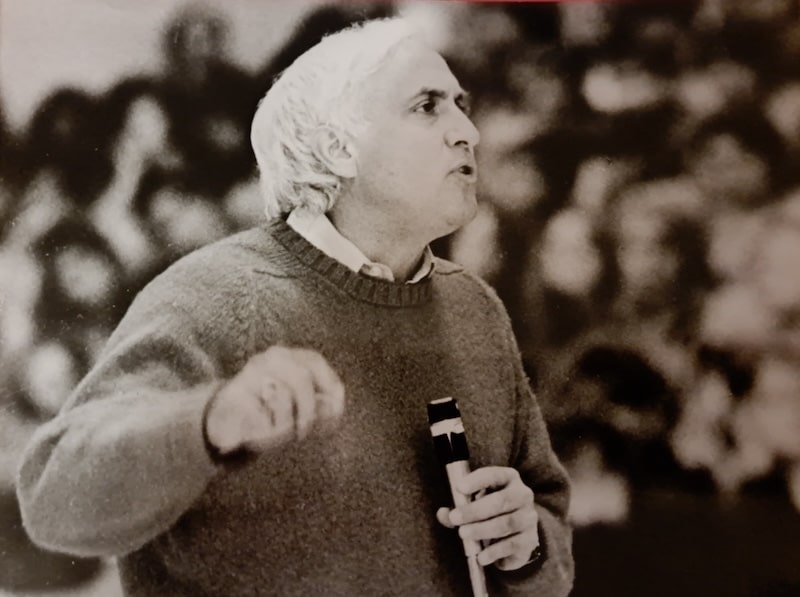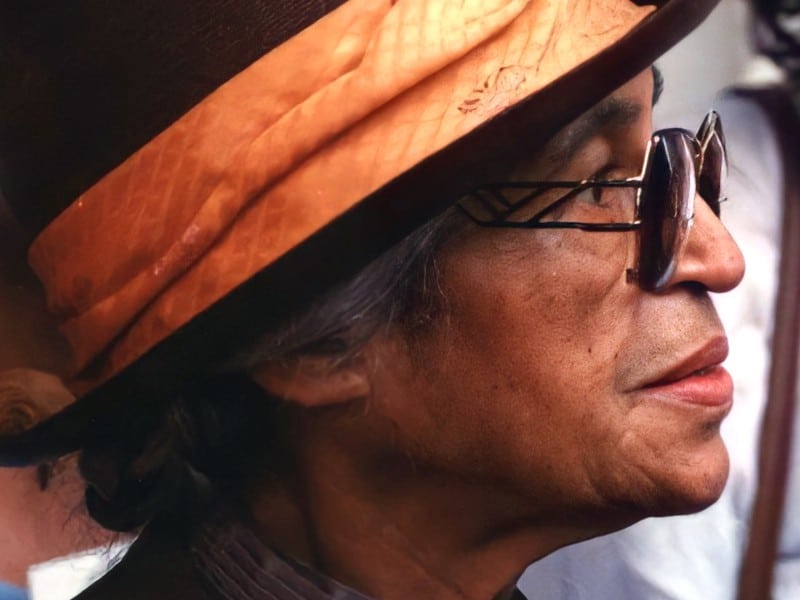Connecting the dots: Detroit firefighter sees a bigger picture around health equity
Detroit firefighter Gary Ringer is connecting with national health experts to promote a better culture of health in his community, and wants local stations to be a part of that change: "As firefighters, we can do more than just putting the ‘wet stuff on the red stuff,’ we can play a more intricate role in the community we serve."

This story is part of a series supported by the New Economy Initiative (NEI).
Gary Ringer has a unique perspective on his city. A firefighter, deconstruction company entrepreneur, and culture of health leader, Ringer witnesses both the immediate and the long-term impact of keeping residents safe.
Ringer has worked as a Detroit firefighter for nearly 20 years and, after seeing his fair share of blighted buildings, he established a company in 2013 to do something about it. Eco-Environmental Solutions specializes in deconstruction of fire-ravaged buildings and Ringer has overseen around 15 projects throughout the city, mostly in the Cody Rouge and Warrendale area. But he is quick to explain that the work he does cleaning up blight is part of a much bigger picture.
After Detroit declared bankruptcy in 2013, the city’s fire trucks transitioned to also becoming Emergency Medical Services (EMS) first responder rigs, and Ringer saw the call-outs at his Joy Road fire station triple.
“Our run volume went from 100 runs a month to 300 runs per month,” he says. “It gave me the capacity to see our community has a lot of health needs. It was all the information I needed to speak about what I saw and what needed to be done to create change.”
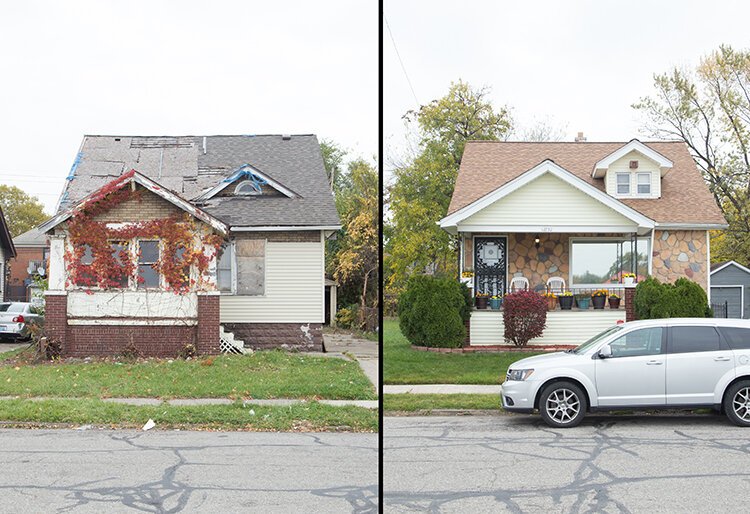
Battling discrimination
One of the areas Ringer focuses on is infant mortality rates. Michigan ranks 36th in the nation in terms of infant mortality, with Black infants twice as likely to die before the age of one than white infants, according to a report released this year by the Michigan League for Public Policy (MLPP). The maternal mortality rate for Black women is three to four times that of white women.
“It’s important to note that these negative statistics stem not from who these mothers are, but from the discrimination they face in systems like hospitals and schools,” says Gilda Z. Jacobs, president and CEO of MLPP.
MLPP’s report calls for a statewide effort to address systemic racism and poverty as part of the approach to reduce this figure, and Ringer wants to be a part of the solution. He runs safety training courses for residents and sees the potential for fire departments to help, pointing to initiatives in other cities.
“Atlanta has 33 dedicated fire stations doing car seat safety checks,” he says. “You might ask, ‘what do car seats do?’ but that program creates an opportunity to engage your community with prenatal safety. We can take residents’ information and connect them with the health department to provide important information about services.”
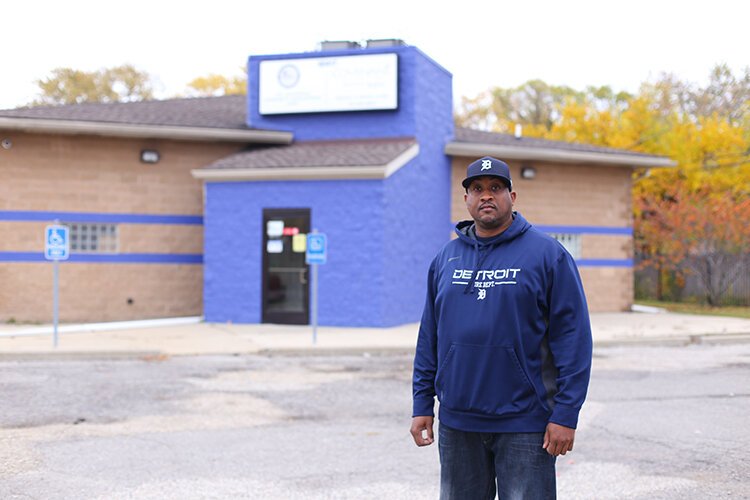
Putting Detroit in a national context
Ringer regularly makes Who’s Who lists of Detroit and in 2018 was selected for a national, three-year leadership course run by the Robert Wood Johnson Foundation, where he was recognized for the work he does for at-risk members of his community.
“It was extremely beneficial,” he says. “To be a part of leaders from all across the country looking to create solutions to not only improve health but to address equity and disparity issues.”
He has connected with health experts in other major cities and says he has been able to learn as well as be heard, sharing his lived experiences as well as his expertise.
“I was able to articulate the need to address not only the gaps, we are all familiar with the education gap, the skills gap, the wealth gap, but I was able to speak to the health gap.”
Connecting with that bigger picture is, however, also a source of frustration for Ringer.
“Unfortunately there’s too much not being done in Detroit,” he says. “Even if we just look at deconstruction, why is that thriving in other places but not Detroit? Why are community health initiatives going on in other communities? We can do a much better job not just as a fire department but as a community to engage.”
Now, with the impact of COVID-19 affecting vulnerable communities, Ringer — who is also a member of the Joy Southfield Community Development Corporation — is grateful for the prior experience and the network he has built.
“To be on the frontlines before the virus, and now to see the brunt of it and have boots on the pavement, I have the opportunity to be a culture of health leader,” he says. “As firefighters, we can do more than just putting the ‘wet stuff on the red stuff,’ we can play a more intricate role in the community we serve.”
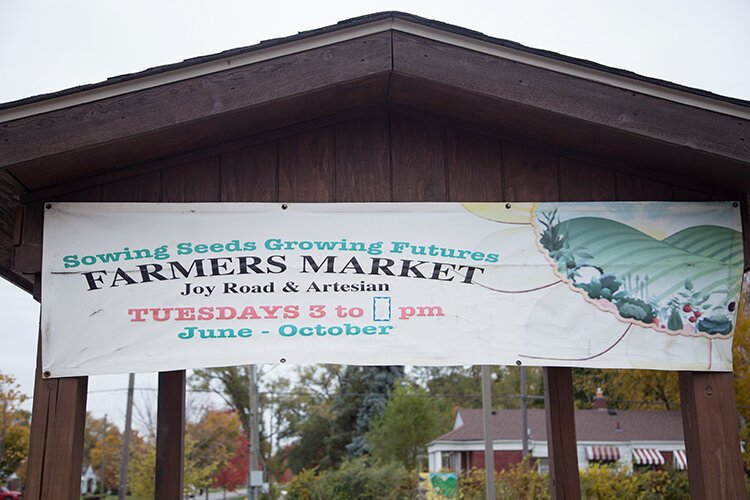
Sustaining change
While Ringer enjoys the volunteer work he has done, he wants to see the value of community leaders realized, and roles become sustainable, paid work.
“We all live multifaceted lives,” he says. “Most people realize the need to be multidimensional in what they do. We all bring different skill sets to the table and we need to be more appreciative of folks, not just for academic accolades.”
It’s where programs like the Detroit Innovation Fellows (DIF) have helped, providing grant funding and training for changemakers. Ringer joined the most recent DIF cohort, connecting with grassroots innovators around the city and learning how to scale up his Eco-Environmental Solutions company.
“The DIF program helped me professionalize my work,” he says. “I am learning how to get the business certifications, to weather the storm of COVID-19, and am connecting with others who enjoy their skill set and can lighten my load. I am going from being unlicensed to certified and able to pay people what they deserve to be paid.”
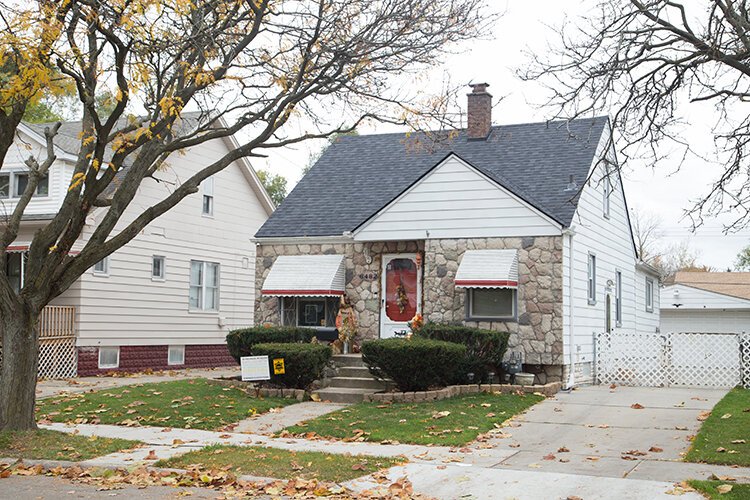
Looking forward
Next, Ringer plans to work on a Housing First initiative to combat homelessness, expand mental health training and first aid education, and push for the enforcement of healthy home mandates for landlords. First, however, he and his team at the station have to make it through the holiday season, traditionally a busy time for firefighters.
“Winter we always have an increase in fires because of appliances and heating issues, fire safety issues around Christmas trees, you name it.”
Despite some daunting statistics in his community, Ringer has hope and recognizes the holistic approach that he believes will strengthen the health of Detroit. He wants, more than anything else, to capitalize on cross-sector collaboration.
“I am networking with doctors, lawyers, nurse practitioners, psychologists, epidemiologists, and social workers — the best of the best are talking about what they are doing in their communities and the front lines of change.”
This is part of a series supported by the New Economy Initiative (NEI), a special project of the Community Foundation for Southeast Michigan that is working to build an inclusive regional network of support for entrepreneurs and small businesses. Social entrepreneurs featured in this series are fellows of the last cohort of NEI’s Detroit Innovation Fellowship (DIF), a talent development program that connects, promotes, and invests in people who are leading projects to transform their communities.

